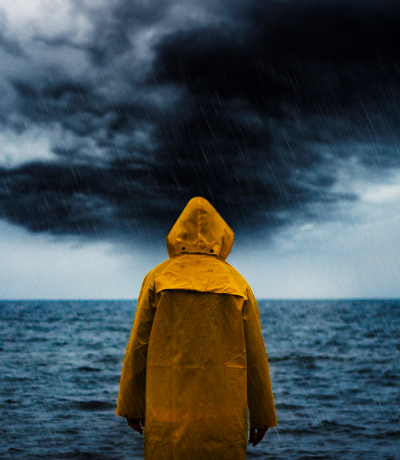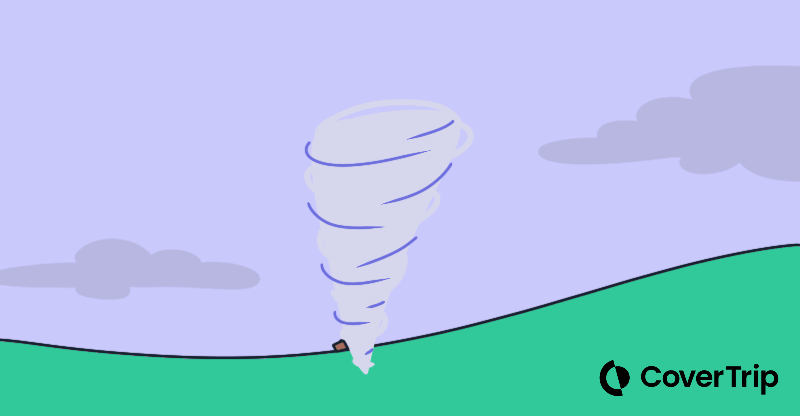Stormy Skies Ahead: Decoding the 2023 Hurricane Forecast
16 June 2023
The ![]() hurricane season forecast for 2023 is out, and it’s gonna be …. (drumroll please) … NORMAL. Huh. Kinda falls flat when you say it like that. Of course, it only takes one landfalling storm to make a big mess for people, properties, economies — and your vacation.
hurricane season forecast for 2023 is out, and it’s gonna be …. (drumroll please) … NORMAL. Huh. Kinda falls flat when you say it like that. Of course, it only takes one landfalling storm to make a big mess for people, properties, economies — and your vacation.
There are two organizations that provide predictions each year: the National Oceanic and Atmospheric Administration (NOAA) and Colorado State University (CSU). Here are the links to each report:
 NOAA 2023 Atlantic Hurricane Season Outlook
NOAA 2023 Atlantic Hurricane Season Outlook Extended Range Forecast of Atlantic Seasonal Hurricane Activity and Landfall Strike Probability for 2023 (Sigh, academics have to use all the words
Extended Range Forecast of Atlantic Seasonal Hurricane Activity and Landfall Strike Probability for 2023 (Sigh, academics have to use all the words  )
)
Specifically, the outlook is a “near normal” hurricane season with a 30% chance of above-normal storms, a 30% chance of below-normal storms, and 40% just plain normal.
So what will the hurricane season forecast mean for your summer travel?
As you know, hurricane season officially started June 1 (May 15 for the Northeast Pacific region) and it runs through the end of November each year. The average Atlantic hurricane season has 14 named storms, seven hurricanes, and three major hurricanes.
So now that you’re up to date on the basics of hurricane season, how do you make sure your summer travel plans won’t be impacted? Read on to find out.

Potential for travel impacts
Hurricanes and other summer storm activity present massive issues in flight delays, cancellations, and routing issues. Modern aircraft are capable of flying over, above, and around hurricanes, it’s the ground operations that are most affected.
Here are the travel planning and real-time adjustments you can make if a hurricane is brewing:
- Watch for travel waivers and options to rebook and/or cancel flights; most airlines are prepared to accommodate changes during hurricane season.
- Peak hurricane season for the Caribbean is mid-August through early November. If this is your destination, travel in early summer or head to the ABC islands (Aruba, Bonaire, and Curaçao) which are more sheltered from hurricanes.
- Cruise ship itineraries can be affected by hurricanes, so you may not see all the places or ports you planned on. The good news is that you’ll be quite
 safe on a cruise during a hurricane.
safe on a cruise during a hurricane.
Remember that even if the storm doesn’t reach hurricane level, it can damage properties and infrastructure. Non hurricane-level storms can also disrupt your travel plans.
Example: ![]() Tropical Storm Nicole caused Disney World to pre-emptively close in 2022.
Tropical Storm Nicole caused Disney World to pre-emptively close in 2022.
4 Tips for hurricane season trips
The weather is so unpredictable that it’s a universal and reliable joke. So you can’t really predict what will happen this summer. What you can do is prepare for the potential of a hurricane or tropical storm.
Here’s what to do when you’re planning your trip:
- Before leaving a deposit with a hotel, find out their refund policy in the event of a hurricane. Be sure to read the document closely as not all situations are reimbursable.
- Don’t purchase a vacation or cruise package without fully understanding the policies in the event of a hurricane.
- Before fully committing to your trip, research your evacuation or shelter-in-place options if a storm suddenly turns for the worse.
- Purchase a travel insurance plan that has full
 coverage for hurricane events. Make this purchase as soon as you book your trip to have the most protection.
coverage for hurricane events. Make this purchase as soon as you book your trip to have the most protection.
Here are the instructions to understand and buy ![]() hurricane travel insurance.
hurricane travel insurance.
Warning: If you’re working with a travel agent, make sure that person purchases adequate travel insurance. Sometimes, this step gets skipped, assumed, or miscommunicated (e.g., the agent thinks you are doing that step or vice-versa.)
4 Things to do if a storm is coming
If the storm appears serious, most (but not all) hotels and airlines will let guests cancel or reschedule without significant penalty.
The key is that it will be up to them, not you, to determine whether your safety is at risk. If that isn’t in your comfort zone, a travel insurance ![]() plan with ‘cancel for any reason’ is recommended.
plan with ‘cancel for any reason’ is recommended.
If you’re wondering whether you should cancel your trip:
- Keep an eye on the news, weather sites, and the
 NOAA Hurricane Tracker.
NOAA Hurricane Tracker. - Check with the airline to find out if flights are being canceled.
- Call your travel providers (hotels, vacation package providers, and/or travel agent) and find out their plans for adjusting.
- Review your trip insurance plan, call your travel insurance plan provider, and discuss your options.
Bonus: Check out this hurricane map tracking website.
What to do if a hurricane happens while you’re traveling
If you’re already on your trip and a storm gets stirred up, or a hurricane suddenly shifts direction, you may decide it’s safest to leave your trip location. Most travel insurance policies cover ![]() trip interruptions, which are situations that force you to abandon your trip early.
trip interruptions, which are situations that force you to abandon your trip early.
Picture this: You’re exploring the Italian Lake District and hear the news that a hurricane has smashed into your home in Georgia. You may decide you want to get back home to assess the damage.
A good travel insurance plan will have coverage to help you leave your vacation if you’re forced to due to an incoming storm.
Additional tips for at-risk trips
Here are some final tips for travelers planning to visit areas that are at risk for hurricanes:
- Pack for hot and cold weather, rain and wind, just in case.
- Monitor the weather forecasts daily so you can adjust your travel plans, if necessary.
- Make sure family and friends can contact you (and you them) in case something happens.
Related topics
Damian Tysdal is the founder of CoverTrip, and is a licensed agent for travel insurance (MA 1883287). He believes travel insurance should be easier to understand, and started the first travel insurance blog in 2006.
